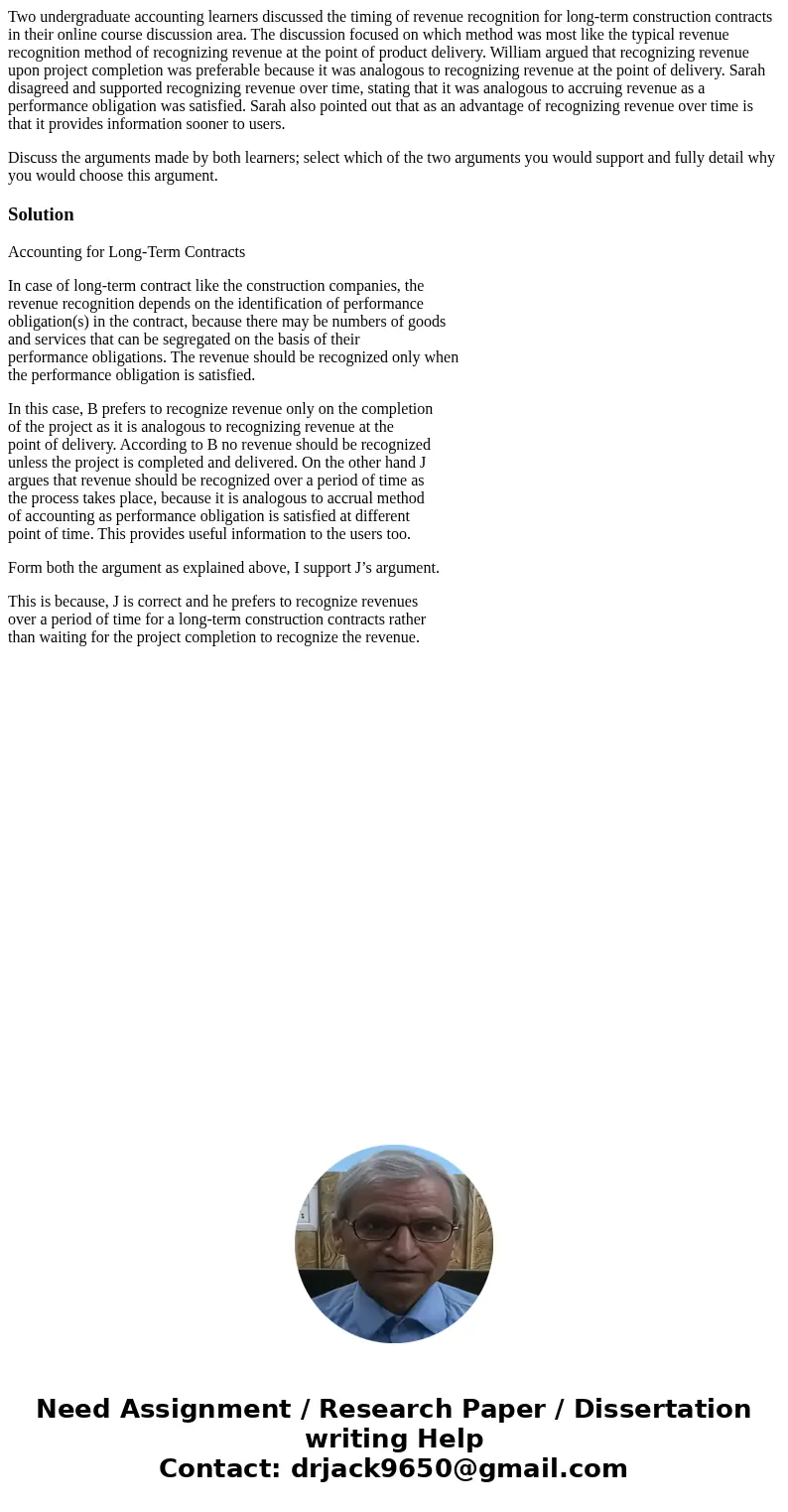Two undergraduate accounting learners discussed the timing o
Two undergraduate accounting learners discussed the timing of revenue recognition for long-term construction contracts in their online course discussion area. The discussion focused on which method was most like the typical revenue recognition method of recognizing revenue at the point of product delivery. William argued that recognizing revenue upon project completion was preferable because it was analogous to recognizing revenue at the point of delivery. Sarah disagreed and supported recognizing revenue over time, stating that it was analogous to accruing revenue as a performance obligation was satisfied. Sarah also pointed out that as an advantage of recognizing revenue over time is that it provides information sooner to users.
Discuss the arguments made by both learners; select which of the two arguments you would support and fully detail why you would choose this argument.
Solution
Accounting for Long-Term Contracts
In case of long-term contract like the construction companies, the
revenue recognition depends on the identification of performance
obligation(s) in the contract, because there may be numbers of goods
and services that can be segregated on the basis of their
performance obligations. The revenue should be recognized only when
the performance obligation is satisfied.
In this case, B prefers to recognize revenue only on the completion
of the project as it is analogous to recognizing revenue at the
point of delivery. According to B no revenue should be recognized
unless the project is completed and delivered. On the other hand J
argues that revenue should be recognized over a period of time as
the process takes place, because it is analogous to accrual method
of accounting as performance obligation is satisfied at different
point of time. This provides useful information to the users too.
Form both the argument as explained above, I support J’s argument.
This is because, J is correct and he prefers to recognize revenues
over a period of time for a long-term construction contracts rather
than waiting for the project completion to recognize the revenue.

 Homework Sourse
Homework Sourse